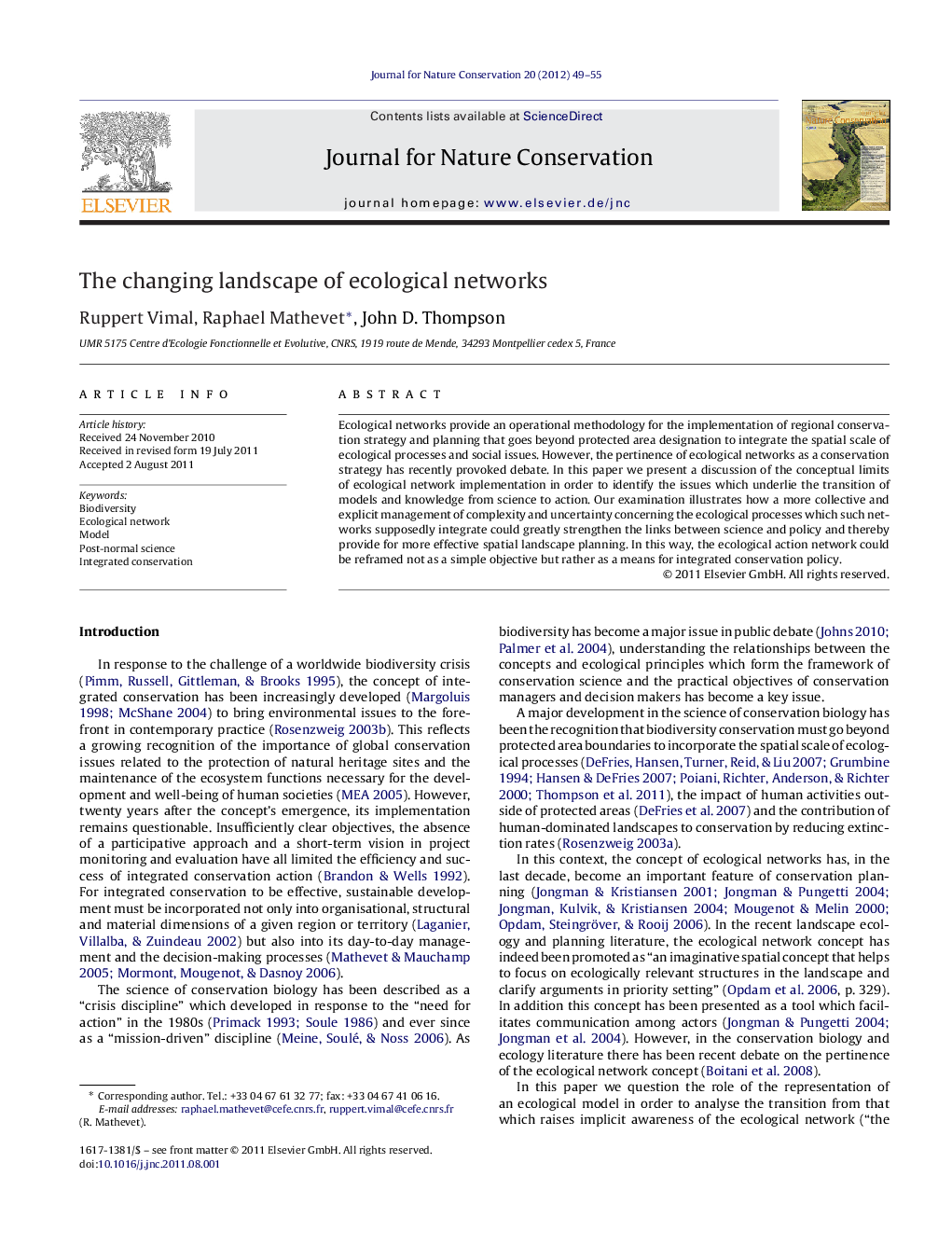| Article ID | Journal | Published Year | Pages | File Type |
|---|---|---|---|---|
| 4399965 | Journal for Nature Conservation | 2012 | 7 Pages |
Abstract
Ecological networks provide an operational methodology for the implementation of regional conservation strategy and planning that goes beyond protected area designation to integrate the spatial scale of ecological processes and social issues. However, the pertinence of ecological networks as a conservation strategy has recently provoked debate. In this paper we present a discussion of the conceptual limits of ecological network implementation in order to identify the issues which underlie the transition of models and knowledge from science to action. Our examination illustrates how a more collective and explicit management of complexity and uncertainty concerning the ecological processes which such networks supposedly integrate could greatly strengthen the links between science and policy and thereby provide for more effective spatial landscape planning. In this way, the ecological action network could be reframed not as a simple objective but rather as a means for integrated conservation policy.
Related Topics
Physical Sciences and Engineering
Earth and Planetary Sciences
Earth and Planetary Sciences (General)
Authors
Ruppert Vimal, Raphael Mathevet, John D. Thompson,
